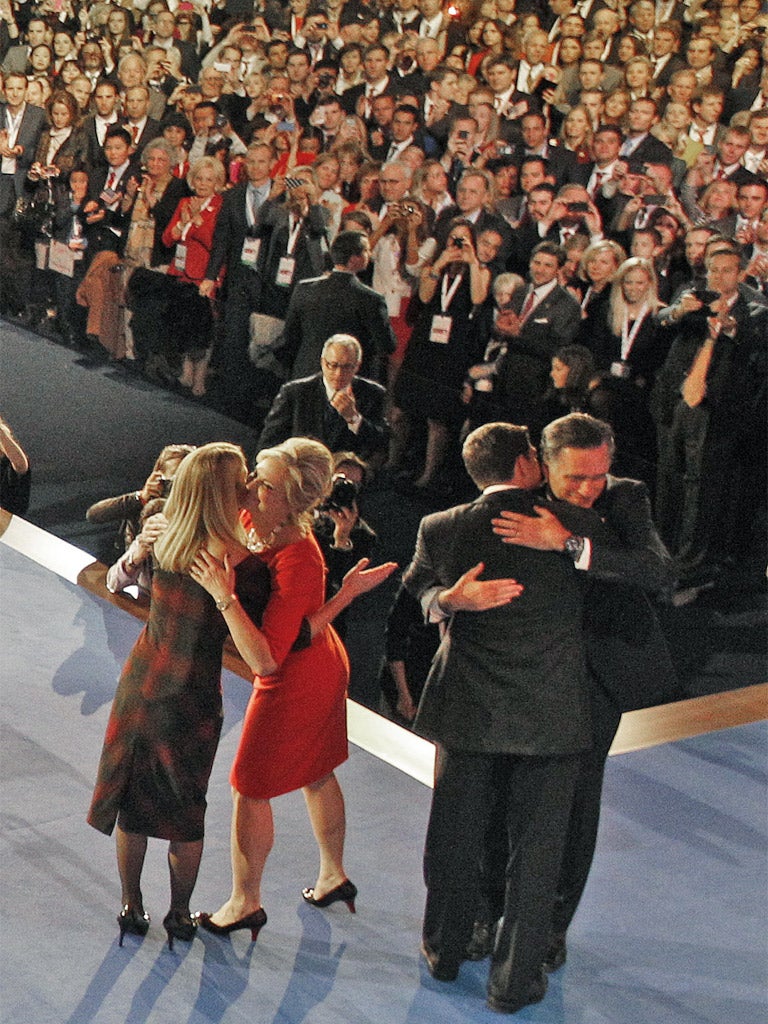Mitt Romney may not have been the saviour they were looking for, but you’ll be hard-pressed to find a Republican who truly believes that a different candidate, from the array who put themselves up for the Presidential nomination, would have made a better fist of the job.
He was chosen as the “least-bad” option, from a buffoonish array which included Pizza magnate Herman Cain, creationist Michele Bachmann, and the serial adulterer, Newt Gingrich. The question now facing party loyalists is simple: will they be able to choose from a stronger field next time?
The immediate signs are hopeful. Several heavy-hitters, who held back from this year’s race, on the apparent basis that it’s never easy to defeat an incumbent, will spend the next three years quietly building a machine to challenge for the GOP nomination next time round.
The most obvious contender is Paul Ryan, who as Mitt Romney’s running mate is the de-facto next in line. This campaign has raised his profile, and left him with solid support among the party base, who at rallies have sometimes given him bigger cheers than Mitt. But whether it has helped, or hurt his standing among the wider electorate remains to be seen.
In the weeks after the Vice Presidential debate, Ryan was effectively banned from TV interviews by the Romney campaign, reportedly over fears that his hard-line views on abortion could present reporters with the tools for an ambush.
It’s possible that approval ratings for the hard-line tax plan that is central to his political identity were also identified as wobbly.
The second biggest gun is Chris Christie, the Governor of New Jersey. His handling of Hurricane Sandy, and bipartisan embrace of President Obama, has endeared him to moderate voters, and strategists often remark that if he could lose roughly half of his bodyweight, he’d have a compelling personal narrative, too.
Standing in Christie’s way are conservative Republicans, many of whom now blame him for Tuesday’s defeat. Rush Limbaugh, the influential talk-show host has called him a “Greek Column” for Obama. Ann Coulter has complained that he’d decided to: “suck up to the grand leader.”
On purely pragmatic grounds, party loyalists may instead be tempted to vote for a politician from a crucial swing state. To that end, the relatively centrist Jeb “brother of George W” Bush, of Florida, or Ohio’s Rob Portman, would have a clearer path to 270 votes in the Presidential electoral college.
But if they’re looking to make a statement that Republicans have changed, primary voters must plump for a candidate who isn’t a white, middle-aged man.
On that front, they might consider Nikki Haley, the Sikh-born Governor of South Carolina, Susanah Martinez of New Mexico, or Bobby Jindal, the Asian Governor of Louisiana. But the odds-makers' favourites will instead Marco Rubio, a 41-year-old son of Cuban immigrants who hails from Florida, and is perhaps the most gifted public speaker on the Republican benches.
“If there's a winner tonight, it's the Senator from Florida, Marco Rubio,” influential conservative columnist George Will told ABC news yesterday. “All eyes are now going to be turned to him as a man who might have a way to broaden the demographic appeal of this party.“
Subscribe to Independent Premium to bookmark this article
Want to bookmark your favourite articles and stories to read or reference later? Start your Independent Premium subscription today.


Join our commenting forum
Join thought-provoking conversations, follow other Independent readers and see their replies